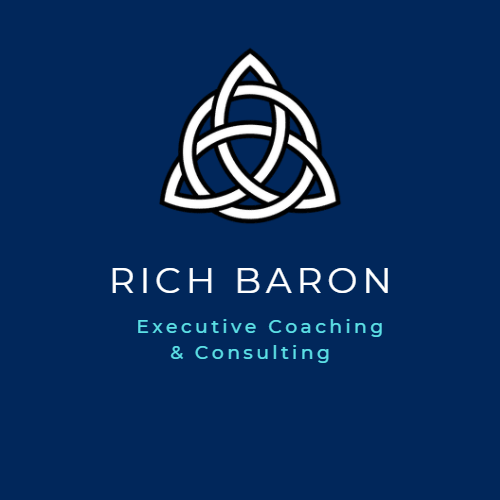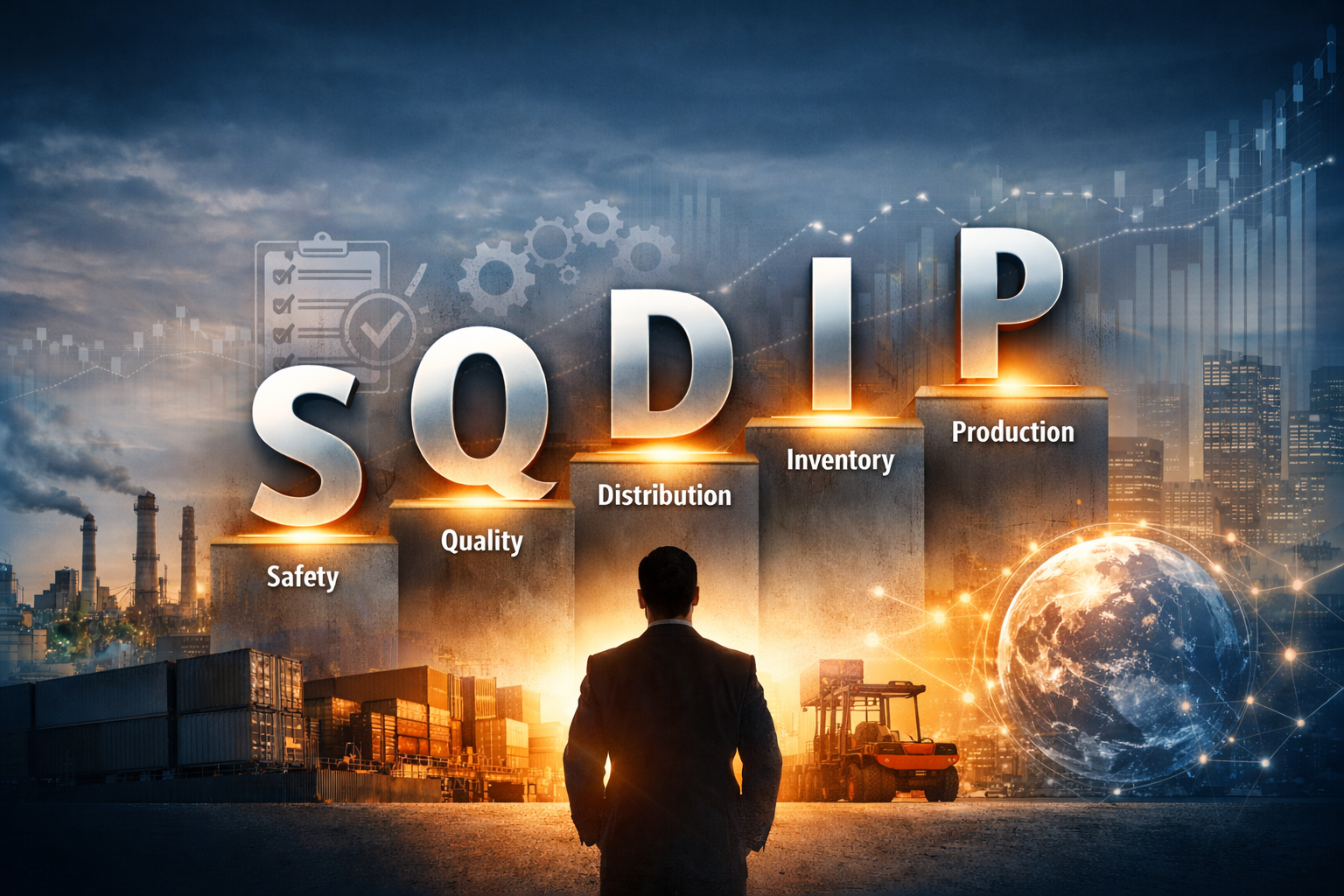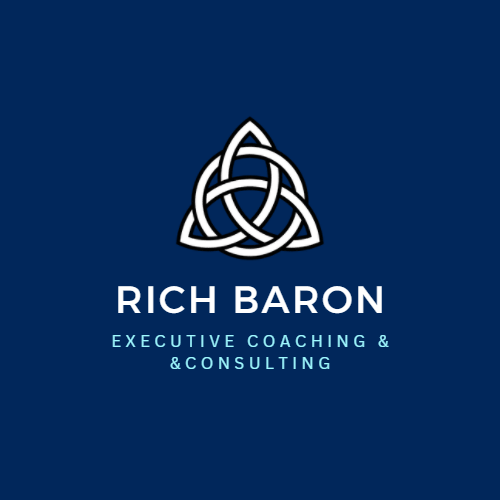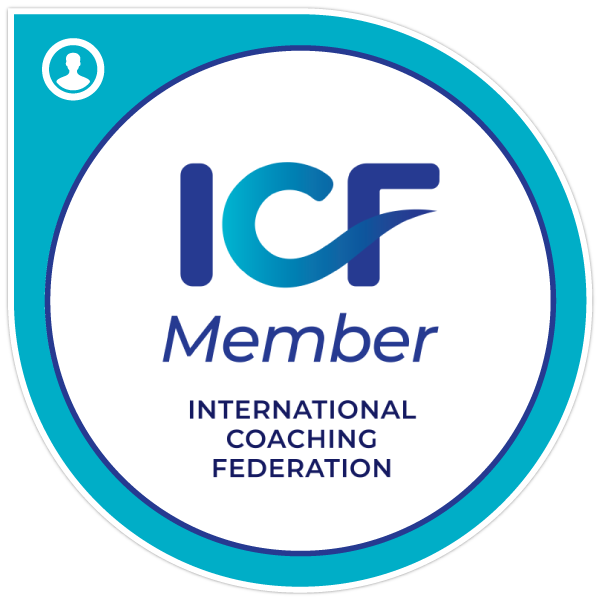High Performer or High Potential? Why Only One Becomes a World-Class Executive
Rich Baron • November 20, 2025
How to move beyond metrics and build the inner architecture of a world-class leader
If you’ve spent any time in corporate leadership, you’ve seen this play out:
A top performer crushes their numbers, gets promoted into a bigger role…and then struggles. Badly.
The organization is shocked.
The leader is overwhelmed.
The team is confused.
What went wrong?
Most organizations still operate under a dangerous assumption: If someone is a high performer, they must be high potential. That assumption is wrong. High performance and high potential are not the same thing.
One drives today’s success. The other builds tomorrow’s.
If you’re serious about becoming a world-class executive—not just successful in your current role, but truly transformational—you must understand the difference and be honest about where you are today.
High Performers: The Engine of Today
Let’s be clear: organizations run on high performers.
They are the people who:
- Hit targets
- Deliver results
- Show up prepared
- Execute the plan
- Carry an enormous amount of operational weight
High performers:
- Excel in their current role
- Thrive within existing systems and structures
- Are reliable, disciplined, and often technically brilliant
- Are the first to be tapped when something important “just has to get done”
High performers are essential. But high performance alone does not predict success at the executive level.
Why?
Because what gets you promoted is not always what will help you lead at the next level.
High Potentials: The Architects of Tomorrow
High potentials are a different breed. They may or may not be at the very top of the performance rankings right now—but they consistently show something more important: trajectory.
High potentials:
- Think beyond their job description
- Learn fast and seek challenge, not comfort
- Demonstrate emotional maturity under pressure
- Influence people, even without formal authority
- Operate from purpose, not ego or title
- Are willing to confront reality, including their own blind spots
- Don’t just deliver results; they elevate the performance and thinking of others
High potentials don’t just play the game well. They see the whole field—and they’re already thinking about how to change it. If high performers are the engine, high potentials are the architects.
World-class executives are almost always found in that second group.
Why High Performers Often Struggle at the Executive Level
Promoting a high performer into an executive role without assessing their potential is like asking your best driver to suddenly design the car. It’s not a character flaw. It’s a misalignment.
Here’s where many high performers stumble when they leap into bigger leadership roles:
1. They rely on “doing” instead of “leading.”
They’re used to winning by outworking everyone else. At the executive level, you can’t win by doing more. You win by thinking better and leading better.
2. They struggle to let go.
Delegation feels risky. Control feels safer. But executives must build systems and leaders, not proof that they can still do everyone else’s job.
3. They think in tasks, not ecosystems.
High performers can own a project. High potentials can understand how that project fits into strategy, culture, and long-term value.
4. They lack developed emotional maturity.
When stakes get higher, so do emotions. Executives live in conflict, ambiguity, and pressure. Without emotional agility, even the smartest high performer can become reactive, defensive, or fear-driven.
5. They haven’t shifted from “Me” to “We.”
High performers often compete. High potential executives learn to multiply. They understand that their true legacy is not in what they accomplish, but in what they enable others to accomplish.
You cannot outrun a lack of leadership maturity. Eventually, it will show up in how you respond to pressure, conflict, and change.
What Actually Signals High Potential?
So what should we be looking for—either in ourselves or in our people—if we want to identify and develop true high potential?
From an executive coaching and Intelligent Leadership lens, high potential is less about current output and more about inner architecture:
1. Character & Integrity
- Do you do the right thing when nobody’s watching?
- Do people trust you—not just respect your performance?
2. Courage
- Are you willing to make hard decisions?
- Will you challenge broken systems, even if they benefit you?
3. Vulnerability & Self-Awareness
- Can you own your mistakes?
- Do you seek feedback, or avoid it?
4. Learning Agility
- How fast do you adapt?
- Do you grow from experience, or repeat the same patterns?
5. Strategic Thinking
- Can you see beyond your function?
- Do you connect dots across the organization?
6. Emotional Intelligence
- Do you understand your impact on others?
- Can you manage your emotions under stress?
7. Culture Stewardship
- Do you strengthen trust, collaboration, and accountability?
- Are people better—clearer, braver, more focused—after interacting with you?
These traits may not show up on a performance dashboard. But they are exactly what predicts whether a leader can grow into a world-class executive.
From High Performer to High Potential: The Shift
The good news?
Being “just” a high performer is not a life sentence. If you’re willing to do the inner work, you can absolutely evolve into a true high-potential leader.
Here’s where that journey begins:
1. Shift from Execution to Influence
Stop trying to prove your value by doing more.
Ask instead:
- Who am I developing?
- Who performs better because I’m here?
- Where am I empowering instead of controlling?
Executives are judged less by the tasks they complete and more by the capacity they create.
2. Understand Your Inner Landscape
High potential requires emotional maturity.
- What triggers you?
- How do you respond to conflict?
- What stories from your past still shape how you lead today?
- Where does fear show up—fear of failure, criticism, loss of control?
If you don’t understand yourself, your leadership is built on guesswork.
3. Think Two Levels Up
Stop asking only: “How do I win in my role?”
Start asking: “What does my boss need? What does the organization need?”
High potential leaders:
- Understand strategy, not just tasks
- Anticipate impact, not just activities
- See how decisions affect people, culture, and long-term value
4. Embrace Courage and Vulnerability Together
Courage without vulnerability can become arrogance.
Vulnerability without courage can turn into indecision.
You need both.
That means:
- Having hard conversations you’ve been avoiding
- Owning where you’re not as strong as you thought
- Admitting where you need help—and then actually asking for it
5. Become a Culture Leader, Not a Bystander
Culture is not HR’s job.
It is created, reinforced, or destroyed in every leadership interaction.
High potential leaders:
- Set expectations clearly
- Hold people accountable with dignity
- Protect psychological safety while demanding performance
- Model the behaviors they say they value
If you are not actively shaping culture, you are passively allowing it—which is a leadership decision in itself.
6. Get a Coach, Not Just a Mentor
Mentors can tell you what worked for them. Coaches help you understand what will work for you.
A strong executive coach helps you:
- See your blind spots
- Challenge your assumptions
- Build new habits aligned with your values and aspirations
- Accelerate your growth from high performer to high potential—and then to world-class executive
How JMG Executive Coaching Helps You Become a High-Potential Leader
Becoming a high-potential leader doesn’t happen by accident. It requires intentional work on the inside of your leadership—your character, courage, mindset, and behaviors—not just on your performance metrics.
That’s where John Mattone Global (JMG) executive coaching comes in. At JMG, we don’t just coach you to “do more” or “perform better.”
We help you reshape the inner architecture that drives how you think, decide, and lead.
1. We Start With the Truth, Not the Title
Through powerful assessments (including MLEI, CPI-260, iOPT, STLI-360 and others), we give you a clear, honest picture of your strengths, derailers, and blind spots. No spin. No corporate gloss. Just the insight you must have if you’re serious about growing from high performer to high potential.
2. We Focus on the 7 Pillars of Intelligent Leadership
JMG’s Intelligent Leadership framework goes far beyond generic “leadership tips.” We help you develop the core pillars that define high-potential executives:
- Character & Integrity – Being the leader people trust.
- Courage – Making bold, principled decisions under pressure.
- Vulnerability & Humility – Owning your gaps and learning from them.
- Capability & Capacity – Expanding what you can take on without burning out.
- Strategic Thinking – Seeing beyond the moment and beyond your function.
- Passion & Purpose – Leading from something deeper than ego or title.
- Thoughts–Emotions–Actions Alignment – Responding vs. reacting.
We’re not just interested in what you do as a leader—we’re interested in who you’re becoming.
3. We Build a Personal Leadership Roadmap (Not a Generic Plan)
High-potential leadership isn’t one-size-fits-all. Through an Individual Leadership Development Path (ILDP), we co-create a roadmap that is:
- Specific to your role and aspirations
- Grounded in your assessment data and real feedback
- Focused on a few critical behaviors that will move the needle
- Measurable and accountable over time
This isn’t a motivational talk. It’s a structured journey.
4. We Hold You Accountable to Your Future Self
High performers are great at holding themselves accountable to tasks. High potentials learn to hold themselves accountable to who they want to become.
In JMG coaching, we:
- Challenge excuses and old stories that keep you stuck
- Track your commitments and behavior changes over time
- Push you to have the hard conversations you’ve been avoiding
- Help you show up consistently as the leader you say you want to be
We don’t just remind you of your goals—we help you honor them.
5. We Align Your Growth With Culture and Legacy
World-class executives don’t just chase results; they shape culture and legacy.
JMG coaching helps you:
- Understand the culture you’re creating—intentionally or not
- Build trust, psychological safety, and accountability on your team
- Lead change in a way that is both bold and human
- Connect your leadership to something larger than quarterly targets
Because at the end of the day, high potential isn’t just about where you can go in your career.
It’s about who you are becoming and what you leave behind in the people and organizations you touch.
The Hard Question: Which One Are You… Really?
This is where it gets uncomfortable, but powerful.
Ask yourself:
- Do people follow me because they have to, or because they want to?
- Do I spend most of my time doing, or thinking and leading?
- Do I take responsibility for my growth—or blame the system, my boss, or the organization?
- Do I want the next title, or do I want to create real impact?
- Am I building other leaders, or just building my own reputation?
If your answers reveal that you’re more high performer than high potential right now, that’s not a failure.
That’s awareness. And awareness is the starting point for transformation.
Final Thought: The Choice Is Yours
High performers make organizations successful.High potentials make organizations sustainable.World-class executives do both—but they don’t get there by accident.
You will not “perform” your way into sustainable executive leadership. You must grow your way into it.
So the real question is no longer, “Am I performing at a high level?”
The real question is:
“Am I becoming the kind of leader who can shape the future—of my team, my organization, and my own legacy?”
That’s the difference between a high performer and a high potential, and that difference is exactly where your next chapter as a world-class executive begins.
If you’re ready to explore what that journey could look like with JMG executive coaching, let’s talk.
About the Author
Rich Baron is the Chief Operating Officer and Director of Global Coaching Projects at John Mattone Global (JMG) and a Master Certified Intelligent Leadership® Executive Coach. He partners with C-level leaders and high-potential executives around the world to strengthen trust, elevate culture, and drive sustainable transformation.
Rich leads large-scale coaching and cultural initiatives across multiple regions and industries, and serves as a strategic bridge between executive teams, HR, and global coaching networks. He is also the co-host of the Mainline Executive Coaching ACT podcast, recognized as one of the top executive coaching podcasts globally, where he explores the real-world challenges and opportunities facing today’s leaders.
Through his work, Rich is dedicated to CHANGING THE WORLD One Leader, One Organization at a Time® by helping leaders move beyond performance and build the inner architecture required to become world-class executives.




